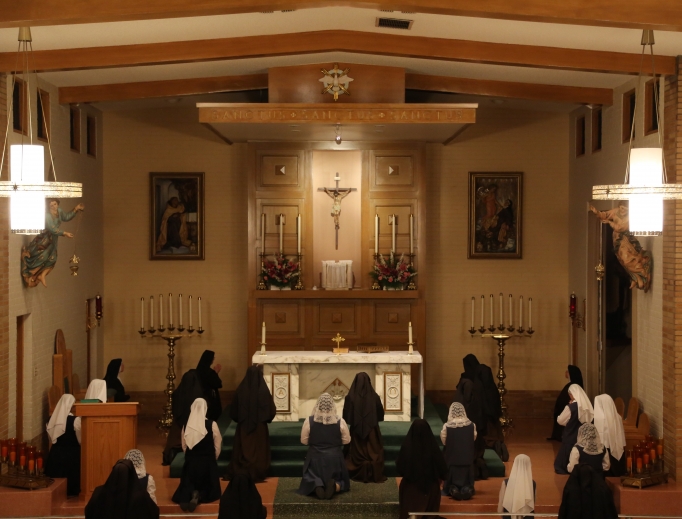

By praising God in the words offered by the Church, we unite our voices in a symphonic harmony. The Liturgy of the Hours is the Church’s prayer. As a profoundly ecclesial prayer, the Divine Office unites a believer wherever she is with the universal church. We become joined to Him in our thoughts and words. Prayer is the raising up of heart and mind to God. One of the main effects of any prayer is union. Praying the Divine Office has several extraordinary effects: Union Read more: A beginner’s guide to the Liturgy of the Hours Today the Liturgy of the Hours consists largely of the same structure as it has in past ages: the singing of hymns, the recitation of the psalms, excerpts from Sacred Scripture, accounts of the lives of the saints, intercessory prayers, and the Our Father. To that end, Magnificat publishes daily adaptations of this prayer for the lay faithful. Vatican II called on the lay faithful to embrace more widely this method of prayer. It is also called the Divine Office and the Breviary. This is the rhythm of chant that monks and nuns sing in their monasteries, the method of prayer which every priest vows himself to embrace daily. Today the Church, which still holds fast to this custom, calls this schedule of public prayer the Liturgy of the Hours.

The first Christians would gather twice daily for the recitation of the psalms, to exchange intercessory prayers, and to pray together the Our Father. Vatican II powerfully calls the Eucharist, “the source and summit of Christian faith.”Īt the very heart of the Church’s public prayer, though, we hold dear a second ancient tradition. The Eucharist is the very “sacrament of sacraments.” The divine exchange of graces, the union of God to be experienced in the reception of Holy Communion is completely unlike any other form of worship. The Eucharist is liturgy, but the Rosary (a devotion) is not. Today, in the West, liturgy refers to the entire nexus of official public ceremonies, rites, prayers, and sacraments that are offered by the Church. In the Old Testament, the word means the public religious duties, rather than the broader public services of Athens. Liturgy was used by the translators of the Old Testament in the Septuagint for the ritual service of priests and the worship that took place at the Temple in Jerusalem. In Athens, for example, the word described the wealthy citizens’ support of various public services, such as the gymnasium (which in ancient Greece was the center of civic life as well as athletic training) or theater. Liturgy ( leitourgia in the Greek) originally meant a public duty. In the East, however, the celebration of the Eucharist is more widely called The Divine Liturgy. At the conclusion of the celebration we are “sent”: ite missa est. The sacrament sustains us on our mission. the Western) Church, the Eucharist has become commonly called The Mass, emphasizing the particular way the Eucharist nourishes us on our pilgrim journey. The Mass is the celebration, led by a priest, whereby the common bread and wine are changed by the power of God’s grace to the body and blood of Jesus. Generally, Catholics refer to our fundamental communal prayer as the Mass. Christ taught us to be continually at prayer even bestowing upon us a celebration to undertake “in memory of Him.” Jesus taught his disciples, “ they ought always to pray and not lose heart” (Luke 18:1). Since men and women are dependent always and everywhere on God for every good thing, they must attend constantly to the work of prayer. In fact, many of the members of the Church charged with this liturgy as an obligation spend their lives in a type of "social distancing."


 0 kommentar(er)
0 kommentar(er)
